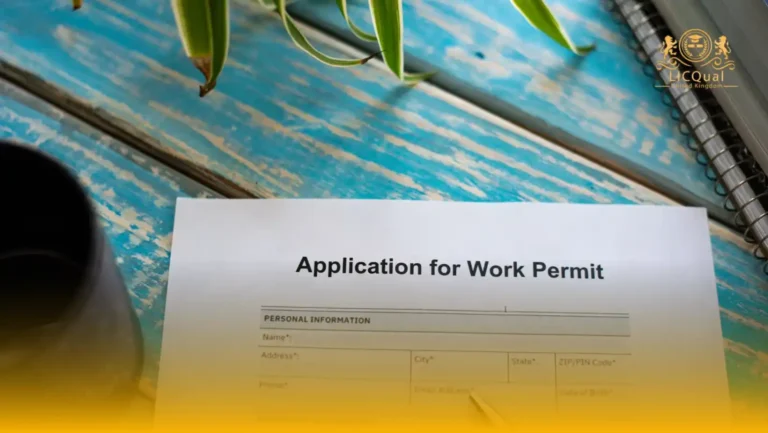The LICQual UK Level 3 Diploma in Air Cargo Management is a UK accredited qualification designed for learners who want to build a strong foundation in aviation logistics and cargo operations. This internationally recognized diploma is ideal for individuals starting their career in air cargo management or professionals seeking to strengthen their knowledge of cargo handling, documentation, and compliance.
Air cargo plays a vital role in global trade, connecting businesses and consumers through fast, reliable, and secure transportation. The Level 3 Diploma in Air Cargo Management UK equips learners with the essential skills to understand cargo acceptance, safe handling, storage procedures, and customer service in cargo operations. It also covers customs documentation, aviation safety, and the use of ICT and tracking systems, ensuring graduates are prepared for the demands of modern airport and air cargo logistics.
This UK accredited air cargo management diploma is aligned with international standards, including ICAO and IATA guidelines, giving learners confidence that their qualification is globally respected. By completing this program, students gain practical knowledge and industry‑relevant expertise that make them highly employable in aviation, freight forwarding, and logistics companies worldwide.
The LICQual UK Level 3 Diploma in Air Cargo Management is particularly suited for fresh graduates, career changers, and professionals already working in logistics who want to formalize their skills with a recognized qualification. It provides a clear pathway to advanced studies, such as the Level 6 Diploma in Air Cargo Management, and opens doors to supervisory and managerial roles in the aviation industry.
With a focus on practical training, compliance, and career development, this diploma is more than just a certificate—it is a gateway to a rewarding career in aviation logistics. If you are looking for an internationally recognized Level 3 Air Cargo Management Diploma UK, this program offers the perfect balance of academic knowledge, practical skills, and global career opportunities.
Course Overview
Qualification Title
LICQual UK Level 3 Diploma in Air Cargo Management
Total Units
6
Total Credits
60
GLH
240
Qualification #
LICQ2201259
Qualification Specification
To enroll in the LICQual UK Level 3 Diploma in Air Cargo Management, applicants must meet the following criteria:
|
Qualification# |
Unit Title |
Credits |
GLH |
|---|---|---|---|
|
LICQ2201259-1 |
Introduction to Air Cargo Management |
10 |
40 |
|
LICQ2201259-2 |
Cargo Handling & Storage Procedures |
10 |
40 |
|
LICQ2201259-3 |
Aviation Safety, Security & Dangerous Goods Awareness |
10 |
40 |
|
LICQ2201259-4 |
Documentation & Customs Procedures |
10 |
40 |
|
LICQ2201259-5 |
Customer Service in Cargo Operations |
10 |
40 |
|
LICQ2201259-6 |
ICT & Cargo Tracking Systems |
10 |
40 |
By the end of this course, learners will be able to:
1. Introduction to Air Cargo Management
By the end of this unit, learners will be able to:
- Explain the structure and role of the global air cargo industry in international trade.
- Identify key stakeholders such as airlines, freight forwarders, and ground handling agents.
- Describe the end‑to‑end process of air cargo operations from acceptance to delivery.
- Recognize different types of cargo and their handling requirements.
- Apply ICAO and IATA guidelines to basic cargo operations.
- Demonstrate awareness of career pathways in air cargo management.
2. Cargo Handling & Storage Procedures
By the end of this unit, learners will be able to:
- Apply safe handling techniques for general, perishable, and special cargo.
- Demonstrate correct loading, unloading, and stowage procedures in compliance with IATA standards.
- Inspect cargo for damage, irregularities, and compliance with safety regulations.
- Implement correct storage methods to maintain cargo integrity and security.
- Evaluate warehouse layout and storage systems for efficiency.
- Use best practices to minimize risks of cargo damage and delays.
3. Aviation Safety, Security & Dangerous Goods Awareness
By the end of this unit, learners will be able to:
- Identify categories of dangerous goods and restricted items under ICAO/IATA regulations.
- Apply correct labeling, packaging, and documentation procedures for dangerous goods.
- Demonstrate awareness of aviation security protocols, including screening and access control.
- Explain the consequences of non‑compliance with safety and security regulations.
- Apply risk management principles to prevent incidents in cargo operations.
- Promote a safety and security culture within air cargo environments.
4. Documentation & Customs Procedures
By the end of this unit, learners will be able to:
- Prepare and interpret key cargo documents such as Air Waybills, manifests, and consignment notes.
- Explain customs clearance processes for imports, exports, and transshipments.
- Apply international trade compliance standards (WTO, WCO, ICAO).
- Identify common errors in documentation and their impact on cargo movement.
- Demonstrate the ability to complete customs declarations accurately.
- Evaluate the role of digitalization in modern customs and documentation systems.
5. Customer Service in Cargo Operations
By the end of this unit, learners will be able to:
- Demonstrate effective communication with shippers, freight forwarders, and regulatory authorities.
- Apply customer service principles to resolve complaints and claims in cargo operations.
- Evaluate customer expectations in the context of air cargo logistics.
- Implement service quality standards to enhance customer satisfaction.
- Use problem‑solving techniques to manage service disruptions and delays.
- Promote a customer‑centric culture within air cargo operations.
6. ICT & Cargo Tracking Systems
By the end of this unit, learners will be able to:
- Operate cargo management systems, barcoding, and RFID technologies for cargo tracking.
- Apply digital tools to monitor cargo movement in real time.
- Evaluate the role of ICT in enhancing transparency, efficiency, and security.
- Demonstrate knowledge of emerging technologies such as blockchain and IoT in cargo tracking.
- Analyze data from ICT systems to improve decision‑making and performance.
- Ensure compliance with data security and confidentiality standards in cargo ICT systems.
The LICQual UK Level 3 Diploma in Air Cargo Management is designed for learners who want to start or strengthen their careers in aviation logistics, airport cargo handling, and freight forwarding. This UK accredited air cargo management diploma is ideal for fresh graduates, career changers, and professionals seeking internationally recognized qualifications. Whether you are entering the aviation industry for the first time or aiming to formalize your skills, this program equips you with the knowledge, compliance awareness, and practical expertise needed to succeed in global air cargo operations.
1. Fresh School and College Graduates
- Perfect for learners who have completed secondary education and want to enter aviation.
- Provides a structured pathway into air cargo and logistics careers.
- Builds essential knowledge in cargo handling, documentation, and safety.
- Offers a UK accredited qualification to boost employability.
- Serves as a foundation for higher studies in aviation and logistics.
2. Aspiring Aviation and Logistics Professionals
- Suitable for individuals aiming to start a career in air cargo management.
- Equips learners with practical skills in handling, storage, and documentation.
- Provides industry‑relevant knowledge aligned with ICAO and IATA standards.
- Enhances career opportunities in freight forwarding and supply chain logistics.
- Opens doors to international job markets in aviation cargo.
3. Current Cargo and Ground Handling Staff
- Designed for employees already working in airport cargo or ground handling.
- Helps formalize existing skills with a UK accredited qualification.
- Improves knowledge of safety, security, and dangerous goods handling.
- Strengthens career progression opportunities within aviation logistics.
- Provides recognition for professional development and compliance.
4. Freight Forwarding and Logistics Employees
- Suitable for staff working in freight forwarding companies.
- Enhances understanding of customs procedures and cargo documentation.
- Builds expertise in customer service and cargo tracking systems.
- Improves efficiency in managing international shipments.
- Adds credibility with a globally recognized diploma.
5. Career Changers Entering Aviation Logistics
- Perfect for individuals from other industries seeking a career shift.
- Provides foundational knowledge of air cargo operations.
- Offers practical skills to transition smoothly into aviation logistics.
- Ensures learners meet international compliance and safety standards.
- Creates opportunities in both local and global aviation markets.
6. International Students and Global Learners
- Open to learners worldwide seeking a UK accredited air cargo diploma.
- Provides international recognition for career mobility.
- Aligns with global standards in aviation and logistics training.
- Enhances employability in multinational cargo and logistics companies.
- Offers flexible learning for diverse educational and cultural backgrounds.
7. Professionals Seeking Career Progression
- Suitable for those aiming to move into supervisory or managerial roles.
- Builds advanced knowledge of cargo operations and compliance.
- Strengthens leadership and customer service skills in aviation logistics.
- Provides a pathway to higher qualifications such as Level 6 Diploma.
- Enhances long‑term career growth in the aviation and logistics industry.
Assessment and Verification
All units within this qualification are subject to internal assessment by the approved centre and external verification by LICQual. The qualification follows a criterion-referenced assessment approach, ensuring that learners meet all specified learning outcomes.
To achieve a ‘Pass’ in any unit, learners must provide valid, sufficient, and authentic evidence demonstrating their attainment of all learning outcomes and compliance with the prescribed assessment criteria. The Assessor is responsible for evaluating the evidence and determining whether the learner has successfully met the required standards.
Assessors must maintain a clear and comprehensive audit trail, documenting the basis for their assessment decisions to ensure transparency, consistency, and compliance with quality assurance requirements.







